- Home
- Roy J. Snell
The Rope of Gold Page 12
The Rope of Gold Read online
Page 12
CHAPTER XII CURLIE GETS THEIR GOAT
You have not forgotten the strange plight into which a jeweled monkey, astorm and a strange craft had led Johnny and Doris. They had arrived atnight on some strange shore. This must be an island. But what island andhow inhabited? Who could say? There were questions enough in their mindsbut none were asked as Doris and Nieta, in the prow of the strange ship,following Johnny began feeling their way out of the dark little forwardcabin into the moonlight.
As they stood upon the gunwale ready to drop silently to the sandy beach,they saw circling to the right and left of them a narrow bay. Back fromthe beach was a fringe of palms.
The night was still. Only the faintest murmur of wavelets lapping at thesand whispered of the ocean's age-long unrest.
Back from the shore all seemed lost in slumber. Not a light glimmered,not a camp fire glowed. There was no sound. Even the soaring batsappeared to have gone to rest.
"Wha--where are we?" Doris shivered though the night was not cold.
"Who knows?" In a few words Johnny told all he knew of the night'scurious adventure.
"All we can do," he said in conclusion, "is to find some sheltered spotwhere we can hide till morning. Then I'll have to go out scouting todiscover if I can find what island this is and what sort of people liveupon it."
Even as he spoke he was conscious of the fact that he was reading intothe present some of the romance and adventure of the West Indies'colorful past. But for all that their position, two girls and a boy on astrange shore at night, was perilous enough.
Silently, in single file, they crossed the sandy beach to come at last tothe edge of the cocoanut grove. There, by following the shore for a shortdistance, they found a well trodden path leading into the forest.
"We won't follow that, at least not to-night," said Johnny. "There aredogs, dangerous native dogs. Natives always have them. And thenatives--who knows?"
They continued along the beach until they came to a spot where the landrose quite abruptly up from the sea.
There they found a second trail, little more than a wild animal's trailto water. The tracks they found there were the sharply cut marks ofgoats' hoofs.
"We'll go up here," said Johnny leading the way. "We'll get up high wherethere are no mosquitoes. There we can rest and think things over."
A half hour later they found themselves seated upon a mossy bank beneathlow-growing palms. The night was soon to end. Then would come morning.What of that morning? Who could answer?
As Johnny sat there listening for some sound that might spell danger,trying at times to peer into the darkness, his mind was filled with manystrange thoughts. At times he found himself wondering about the secretCurlie Carson had hidden away in his laboratory up there in the Citadel.
"He's something like my old pal, Panther Eye," he told himself. "Alwaysworking something out, springing some surprise; always mysterious. Wonderwhere old Pant is now."
He thought of the 'Rope of Gold'. "Guess we'll never find it," he toldhimself gloomily. "Never can tell, though. One thing's sure--never willfind it by chasing jeweled monkeys and getting caught out all times nightand day on boats and islands with a pair of girls."
He couldn't be sure he regretted his latest experience. Doris was aregular sport. He liked her. Hadn't made the least fuss when she foundherself marooned on a strange island. "Be a great joke if she and thisnative girl really followed up that jeweled monkey and found the blackqueen's treasure and we never as much as had a look at the 'Rope ofGold'. Things come out that way sometimes."
He thought of the natives who tried to kidnap him. "Something strangeabout that," he thought. They had not laid a hand on him from first tolast. He wondered what would have happened if he had really resisted. Asit was he had walked out on them and they were quite powerless to stophim. He wished now that he had seen the thing through.
"That's the way with life," he whispered to the darkness. "We have afeeling that life is short, that we must hurry here, hurry there, get outof this and into that; that we really haven't time to see things through.And the joke of it all is life is very, very long and we've time foralmost everything, plenty of time if only we think so."
In the meantime Dorn, with old Pompee at his side at the camp by theCitadel, watched and waited for Johnny's return. At times he wondered ifDoris and Nieta had found their way safely home.
"Of course they did," he said aloud once.
"Did what?" Pompee asked.
"Did find their way home. The girls."
"Yes, yes. To be sure."
Had he seen what at that moment was happening at his home he would havebeen not a little startled. Curlie Carson, Dot and the aged native womanwere at the gate prepared to follow the sound of the drums in search ofthe secret meeting of the would-be rebels, when there sounded on theflagstone walk outside the rattle of a donkey's hoofs.
"It is Doris," Dot exclaimed. "Doris and Nieta. I am glad. We have beenworried about them. Of course, we thought they might have stayed at yourcamp two nights, but that they did not intend to do. The storm must havedelayed them. But now here they are. They--
"Who--what?" She stared as the donkey came into view. His baskets wereempty. He was riderless and alone.
"What can have happened?" She looked at Curlie as if expecting an answer.But Curlie had no answer for her. When he had reached his camp that daythe girls were already gone. This he told her in the kindliest tone heknew.
At once there was commotion in the household. Doris and Nieta were lost;lost alone in the night and the jungle, perhaps kidnapped, robbed,killed. Who could say? Curlie thought of Johnny's disappearance and ofthe strange camp on the mountain; thought too of the plotted rebellion.
"We can do nothing to-night," said Dot. "We must be up and away on thesearch at dawn."
"In the meantime?" said Curlie.
As if in answer to his question, to their ears there came once more thedistant tum--tum--tum of native drums.
Curlie looked at Dot. Dot looked at her aged servant. Then, without aword they walked out of the gate bound for the hills, the three of them,ready to follow the sound of the drums, ready for any peril or adventureto which this might lead.
It was strange, this marching up a little known trail in the night,following the sound of the drum that grew louder, ever louder as theyadvanced.
The night was strange too. The moist air laden with the odor of blossomsand tropical spices was a constant delight. The stars shone as no starshad ever shone before. Here some creeping thing set the dry leavesrustling, there a strange bird piped his shrill night tune.
The trail was steep. As they paused beside a massive rock a breath ofwind came sweeping up from the sea to fan their cheeks. Then, quiteunexpectedly Dot's heart gave a leap. From up the trail came a sound asof a host rushing through the brush.
"Oh--Ah!" she whispered sibilantly, gripping Curlie's arm and backinginto the brush.
Curlie began to laugh. "Do you not recognize the sound?" he asked. "It'sonly a 'chattering woman'."
"O, yes, so it is a 'chattering woman'. How stupid of me to get allexcited," she exclaimed as she stared away in the direction of thecurious tree.
Dot told herself that she must get better control of her nerves if shewas to be of any service on this strange enterprise.
"Listen! The dance grows wilder," she said. "If we are to learn anything,be of any service, we must hurry."
"You see," she explained as they moved steadily up the trail, "the UnitedStates Government is doing all it can for this republic, especially forthe common people, who most of all appreciate and deserve it.
"There are a few in the cities, who were used to growing fat on graftunder the old rule, who do not like the Americans. Then too there aretraders, white men with black hearts, who will do anything they can tostir up trouble. In the old days they grew rich selling arms and suppliesto rebels. It is rumored that a boat loaded with rifles and ammunition ishiding away some
where among the islands and that a rebel chieftain ishere in the hills exciting the hill people to rebel. If only the Marineswere here and the native police," she sighed, "they'd put an end to it.But we must do what we can.
"If rebellion is started, cruel leaders will go roving through the hillsforcing the people to follow them. In that way many innocent ones will bekilled. If it can only be stopped, lives will be saved. And think what itmeans to live!"
Curlie did think. Every morning was a delight. Every day brought somefresh revelation from the natural world. Each night brought sweet repose.Ah yes, life was good.
The life of the hill people was simple and beautiful--children playingabout their small, grass thatched, white plastered homes, men hoeingcorn, women picking wild coffee, and always the simple songs of the hillswere on their lips.
As they rounded a rugged cliff that overhung the trail, the sound of thedrums grew louder and mingled with it was the chant of many voices.
"It is very near," said the native woman.
"Listen!" said Curlie impressively. "When Columbus visited this island onhis first great voyage, he heard those drums. All down the centuries theyhave sounded until now."
"Yes," said Dot. "And always for war. If only we could get their goat,"she said once more. "They will not go into revolt before the black goatis sacrificed."
"But you can't get their goat," Mona whispered in an awed tone. "The_Papa Lou_ has thrown a spell about the black goat. He throws spells overmen and all living things. If he says 'come' the nightingale lights onhis shoulder and the wild parrot eats from his hands. Twenty days ago theblack goat ran wild in the mountains. Now he will not leave the _PapaLou_. You do what you will, you cannot get the black goat. It is a spellthat is cast over him."
"Some part of what you have said is true," said Dot, "but not all, Ihope. We can get their goat. At least I hope so. Somehow we must do it."
At that they began moving forward, now bending low to glide along ontiptoe, and now creeping on hands and knees toward their strange goal.
"There! There they are!" Mona whispered, as she at last parted two broadpalm leaves.
"And there! There is the black goat!" Dot breathed. "And see!" Her wordscame in an excited whisper. "See! There is no spell upon him. He is tiedwith a slender rope."
"Someone else has done this," the aged native woman's tone was one ofcalm assurance. "The _Papa Lou_ did not tie him. There is no need."
"If we could but get the goat!" Dot whispered once more. "You see," herlow whispered tones were tense with suppressed excitement, "these voodoopeople have always been great believers in sacrifice. They have even beenaccused of human sacrifice, but this I cannot believe to be true. Howeverthat may be, they have always sacrificed animals. The goat, a black goatwith not a white hair, has always been their choice, yet, when Christopheprepared to defend his people against the French, he and his followerspledged themselves to fight until death over the carcass of a freshlykilled wild boar.
"Black goats are rare. This _Papa Lou_, by some chance, has found onerunning wild in the mountains. He captured it. They have it now, as yousee. After the drumming, dancing and singing will come the ceremony ofsacrifice. And after that will begin--"
"The revolution," Curlie whispered.
"The revolution," she repeated. "And our little village may be attackedand destroyed at once. For we are white and there are few to protect us."
In his mind's eye Curlie saw the beautiful white chateau standing outlike a castle of Spain in the moonlight. He pictured himself once more inthat beautiful garden with this splendid girl pal across from him andthereupon resolved that, come what might, all this beauty and happinessmust not be destroyed.
"Yes," he said aloud. "We must get their goat to-night."
But how was this to be done? The goat stood at a spot not five feet fromthe edge of the circling throng. The flare of the camp fire lighted thescene. To approach near enough to free the goat was to court disaster.
"Listen." Dot held up a hand.
The drumming had ceased quite suddenly. The chanting died away. Exhausteddancers threw themselves upon the grass. A dark figure, a manunmistakably from the city, a black man with an evil face, rose up fromamong the people. He began to speak in French creole, the language of thepeople.
For a time the three there in the shadows listened spell-bound. The man'swords came forth in wild explosive outbursts. The people murmured assent,or sat in stolid silence, listening to the harangue.
"What does he say?" Curlie whispered.
"He," Mona answered, "he say what is not true. But how are these simpleones to know? He say white men have come to enslave us, even as Frenchmen enslaved our grandfathers. Already we work roads we do not travel.Time will come when we work on plantations, in sugar mills, in mines andhave no pay. That he says. Better he says that we die fighting."
"People have worked the roads always," said Dot. "Now they work on themost needed roads. It's part of America's efficiency."
"I know," said Mona. "But how can these understand? After the speech--thesacrifice."
Curlie repeated, "We must get the goat. But how?"
He thought of his bow and arrow. He was a fair shot. The arrow point wassharp as a razor blade. One twang of the bow, one wild bleat, perhaps,and the goat would be no more. Yet he shrank from killing such abeautiful creature. Besides, such a course was fraught with danger. Theymight be caught. There must be another way.
And then like a flash, to his mind came a suggestion of a possible wayout. At once he began groping about on the ground and about the bark ofthe ancient tree that spread its protecting branches above them. It was apine.
"Listen!" said Mona. "He is telling them that a boat load of arms andammunition awaits them in Deception Bay. After the sacrifice--therebellion."
"We must get their goat," whispered Curlie. He was smearing his arrowheadwith a sticky substance. "Now!" he breathed. "Now!" He nocked his arrow.Then, with a whispered word he thrust something into Dot's hand.
"It's a match," his whisper was low. "A sulphur match. Strike it andapply it to the head of my arrow."
A small blue flame appeared. It wavered for a second at the arrow's head.A larger golden flame replaced it.
The next instant that yellow flame shot forward to lodge in the bark ofthe pine tree to which the goat was tied. It was a perfect shot. Theflames of burning rosin were licking their way toward the rope that heldthe goat captive.
Mona stared with all her eyes. The tiny golden flame had not been notedby the throng. They were too intent on their leader's words.
The arrow and the pine rosin flame burned fiercely now. The rope wasalready singed. In ten seconds it would be burned away. The goat's keensenses warned him of fire. He strained at his rope. One second, two,three, five, then with a wild _blaa_--he threw his full force into oneterrific tug. It was enough. The rope gave way. He fell. Rolling over andover, he at last scrambled to his feet and with a final _blaa_ dashedaway into the darkness that was the jungle.
For a space of ten seconds there was silence. Then pandemonium brokeloose.
"The goat! The goat! The black goat!" the natives screamed in a chorus.
Then, with one accord, they went dashing away into the night, in a wildbut futile attempt to recapture the goat.
"The goat," said Dot, rising from among the ferns, "is free. And Mona,"she said quietly, "there was no spell woven about him. The moment hisbonds were burned away he ran into the forest."
"There was no spell," said Mona.
"There will be no revolution now," said Dot.
"Not at once," said Mona. Then as if a new thought had come to her,"There is a great white shadow in the sea at Deception Bay. That is wherethe ship with rifles is hiding. They had better be careful. The greatwhite shadow--he makes men disappear. They never come back."
"That," said Dot to Curlie in a tone so low the aged native woman couldnot hear, "is another of her wild Voodoo notions."
They made their way unmolested dow
n the mountainside. In time, after along march, they entered the sleeping village. Once more, as Curlie'seyes took in the beauty of it all, the few white chateaux, the manymodest homes of the natives, he said with increasing conviction, "It mustnot be destroyed by a revolution. It must not!"
When they had entered the garden of the chateau, Dot put out a cool handand gave Curlie a strong handclasp and a good night.
"Now," she said, in a tone that was deeply serious. "We have had twoadventures. Something tells me the third will come very soon. Where thereare two there are always three. You will not forget?"
"I will not forget," said Curlie.
"May you sleep well."
"Sweet dreams."
She was gone. The room that had been assigned to Curlie was on the groundfloor. The door opened on the broad porch. He was free to come and go ashe chose. Because the night had been an exciting one and his blood wasnot yet cooled for sleep, he decided to take a turn about the villagestreets. In this way he chanced upon a man who was destined to play alarge part in the near future, not alone of himself but of his friendJohnny Thompson as well.
The man was standing before a low door over which a feeble kerosene lampburned. Curlie recognized him at once. True he had never seen him, but hefitted so well the description of the short, broad man who had played thegood Samaritan to Johnny when he fell among the wild natives on the roadto the Citadel that there could be no mistaking his identity.
Strangely enough the man recognized Curlie Carson.
"You are one of the young men from up at the Citadel," he said withoutwaiting to be spoken to. "You are looking for the 'Rope of Gold'. Whatstrange fancy tells you it is there? And where is your companion?"
"I should like to know that last myself," said Curlie.
"I thought you might," said the short, broad man, blinking his eyes in astrange way. "Well, I can tell you this much: he left some nativefriends, left them flat when they were bent on doing him a good turn, avery good turn. Left them flat I tell you. Walked right out on them."
Curlie was astonished at the man's talk. How, he wondered, could the manknow so much about Johnny?
"You know a great deal," he said. "Perhaps you can tell me where he isnow."
"No," said the man. "I can not. If he is lost, it is his own fault. Thenatives would have guided him safely back to the Citadel and perhaps hewould have brought back with him that which he could not have carried,though I dare say he is a very strong boy."
The man's talk got Curlie in more and more of a tangle. He had assumedthat Johnny had been kidnapped. But here was a man saying the nativeswere his friends bent on loading him down with presents he could notcarry alone.
All this was too much for Curlie's weary mind to grasp. In an effort tothink it through, he looked down at his feet. When he looked up oncemore, the short, broad man was gone. He had vanished into the night.

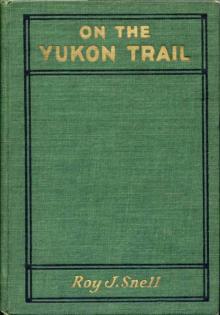 On the Yukon Trail
On the Yukon Trail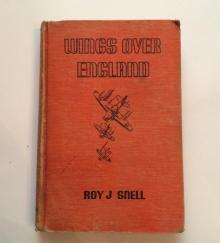 Wings over England
Wings over England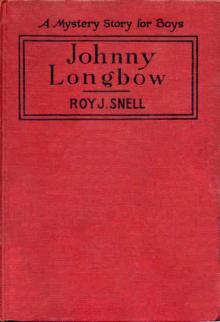 Johnny Longbow
Johnny Longbow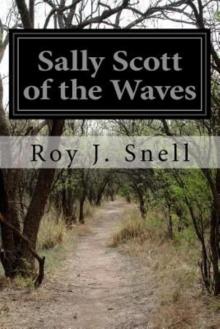 Sally Scott of the WAVES
Sally Scott of the WAVES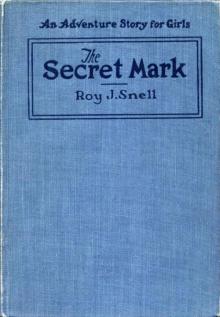 The Secret Mark
The Secret Mark Betty Leicester's Christmas
Betty Leicester's Christmas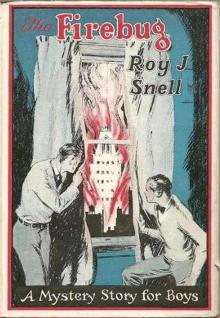 The Firebug
The Firebug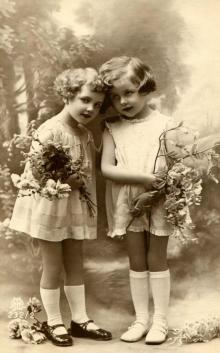 Minnie Brown; or, The Gentle Girl
Minnie Brown; or, The Gentle Girl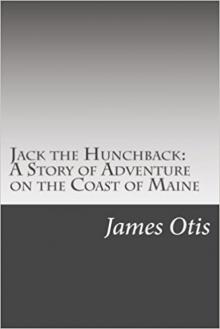 Jack the Hunchback: A Story of Adventure on the Coast of Maine
Jack the Hunchback: A Story of Adventure on the Coast of Maine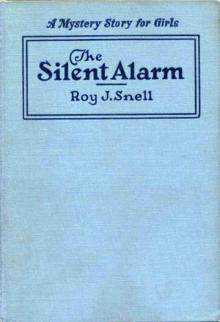 The Silent Alarm
The Silent Alarm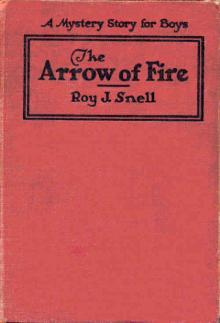 The Arrow of Fire
The Arrow of Fire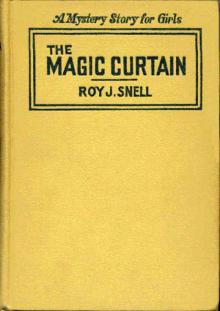 The Magic Curtain
The Magic Curtain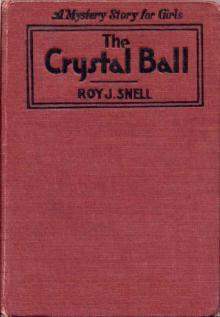 The Crystal Ball
The Crystal Ball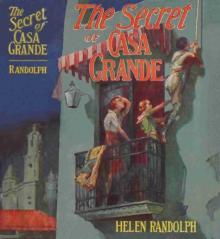 The Secret of Casa Grande
The Secret of Casa Grande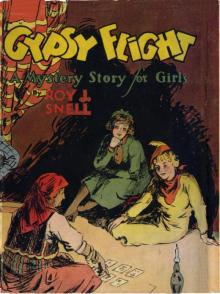 Gypsy Flight
Gypsy Flight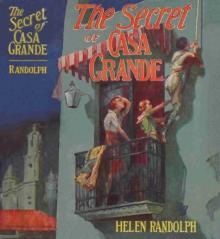 The Mystery of Carlitos
The Mystery of Carlitos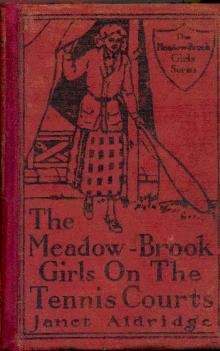 The Meadow-Brook Girls on the Tennis Courts; Or, Winning Out in the Big Tournament
The Meadow-Brook Girls on the Tennis Courts; Or, Winning Out in the Big Tournament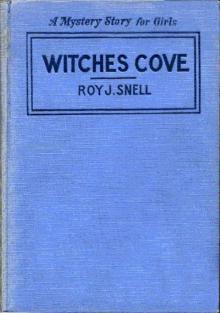 Witches Cove
Witches Cove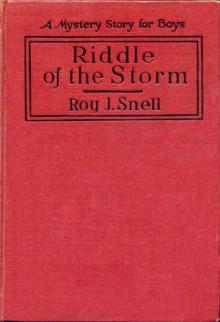 Riddle of the Storm
Riddle of the Storm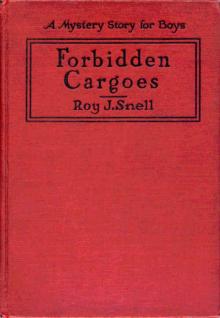 Forbidden Cargoes
Forbidden Cargoes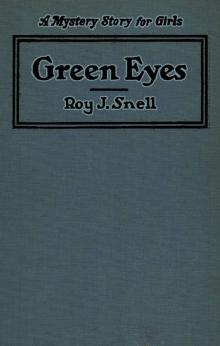 Green Eyes
Green Eyes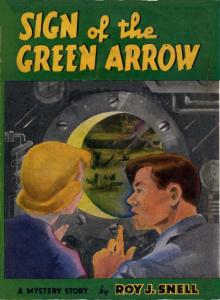 Sign of the Green Arrow
Sign of the Green Arrow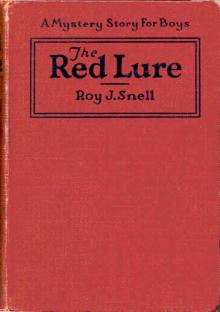 The Red Lure
The Red Lure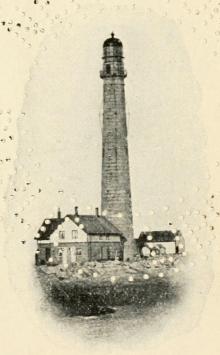 The Light Keepers: A Story of the United States Light-house Service
The Light Keepers: A Story of the United States Light-house Service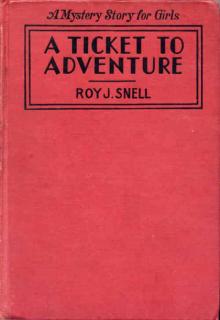 A Ticket to Adventure
A Ticket to Adventure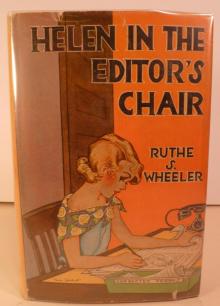 Helen in the Editor's Chair
Helen in the Editor's Chair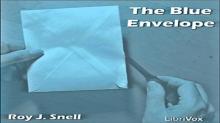 Blue Envelope
Blue Envelope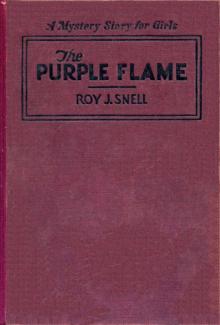 The Purple Flame
The Purple Flame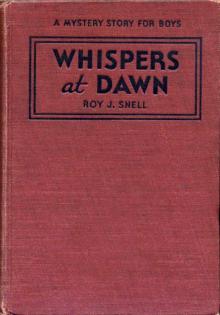 Whispers at Dawn; Or, The Eye
Whispers at Dawn; Or, The Eye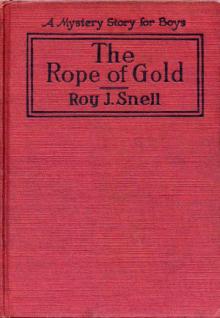 The Rope of Gold
The Rope of Gold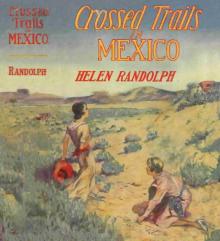 Crossed Trails in Mexico
Crossed Trails in Mexico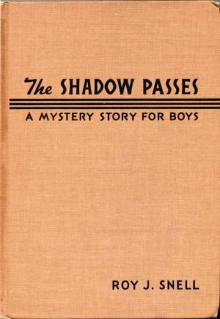 The Shadow Passes
The Shadow Passes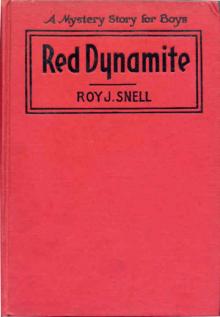 Red Dynamite
Red Dynamite Blue Grass Seminary Girls on the Water
Blue Grass Seminary Girls on the Water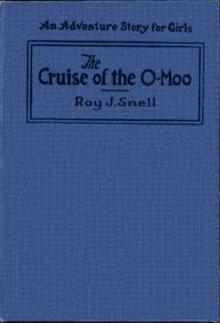 The Cruise of the O Moo
The Cruise of the O Moo